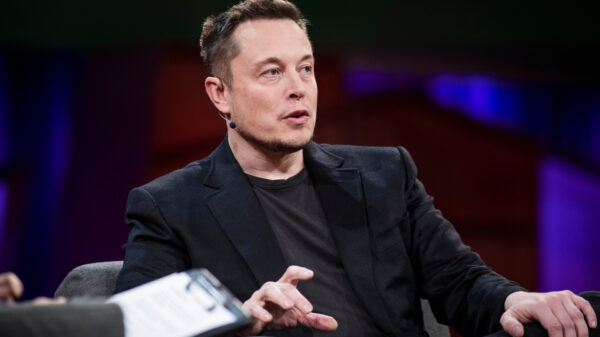Staff writer Salomé Ichay dissects the intricate Chatham House research paper on UK foreign policy and offers their view on its findings.
The world is constantly changing. Global dynamics evolve day by day and the United Kingdom must learn to realistically identify and address shifts in the international arena. Since the victory of the Labour party at the last general election on 4 July 2024, the new government has quickly understood that its foreign policy agenda will be packed. Whether it’s managing the economic consequences of Brexit, the unfolding crises in Ukraine and in the Middle-East, or the rise of US-China tensions, the UK must play to its strengths whilst acknowledging the weight of its financial limits in tackling each of these issues. Chatham House, a world-leading policy institute based in London, published a research paper in May 2024 setting out three foreign policy priorities for the new UK government. As it offers a thorough and dense analysis of the most pressing issues in international relations, I will present the takeaways from this paper as well as offer some of my own thoughts.
“Navigating unpredictable great power dynamics”
The first priority is “navigating unpredictable great power dynamics”. In other words, managing a divided world where friction between China and the United States increases, making it more difficult for the UK to position itself globally. Although the UK and the United States have a longstanding ‘special relationship’ thanks to their shared culture, history and language, the Labour government can not continually rely on its trans-Atlantic counterpart. The UK must take into account the two possible outcomes of the upcoming US presidential election.
If the Democrats win, it is unlikely that a comprehensive free trade agreement between the two countries will occur. Instead, the UK should aim for smaller-scale partnerships on minerals and technologies, notably through the 2023 US-UK Atlantic Declaration. On the other hand, if the Republicans win this election, Starmer’s government may prefer to preserve AUKUS, the trilateral defence partnership with the US and Australia, while working closely with the US Congress to continue supporting Ukraine and cooperating on shared interests.
Moreover, were Trump to become the next American president, the role played by the US in ensuring European security would be re-evaluated. In fact, the Republican candidate, who recently survived an assassination attempt, has repeatedly advocated for a reduction in military aid to Ukraine. This shift in policy suggests some form of pressure will be applied to European governments to raise their financial aid given to Ukraine for the US to mitigate its own defence budget. Overall, due to their ‘special relationship’, election results in the US have a significant impact on the UK’s economic strength and politics – an impact that has only grown during the post-Brexit era. Regardless of the results, it is crucial to maintain economic and military links with the US.
Furthermore, the UK must manage its relationship with China more efficiently. Contrary to the past, the UK must trace its own path in liaising with the Asian state rather than systematically aligning with the anti-China position of the US. This is especially important because China presents plenty of economic opportunities to the UK. However, the need to maintain economic cooperation must not come at the expense of cautiousness to potential risks such as cyberattacks or economic coercion.
The challenge is therefore to manage the trade-offs between security and prosperity with careful consideration. In order to improve the UK’s relationship with China, Chatham House offers an innovative solution: to form a cross-government China-focused policy unit. Indeed, experts of the policy institute argue that the complexities related to the diplomatic relations between the two states may be explained by the lack of a China-dedicated department within the UK government. Which thus incurs rather ineffective and limited management of the relationship.
Additionally, the UK government has economic and security interests in the Indo-Pacific region. In fact, this relationship is the other side of the UK-China relations coin. Maintaining strong links with this part of the world remains an essential feature of UK foreign policy as it enables the creation of a counterweight against China. By forming secure diplomatic partnerships with countries such as India, Japan and South Korea, the UK aspires to spread the risk across Southeast Asia. Nonetheless, the British presence abroad is not without obstacles with resources limited. In other words, the UK must cherry-pick its involvement in the Indo-Pacific which may prove challenging when it comes to defending Taiwan against China in a hypothetical outbreak of war.
“Improving the UK’s relations with Europe”
The second priority is improving the UK’s relations with Europe. Since Brexit, the UK has encountered some economic setbacks. Although over-turning the Brexit referendum is not practicable, nor desirable for some, seeking closer relations with the EU appears the best bet. The Trade and Cooperation Agreement (TCA) is up for review in 2026. In simple terms, this agreement, passed in 2020, removed tariffs and quotas but created other barriers to trade in goods. Until it renewal date, no major policy change is expected.
The aim of this review is to reduce these barriers with the EU to rebuild a relationship based on trust and shared economic interest. However, the research paper emphasises any changes brought by the TCA will not be significant enough to produce a noticeable shift in the UK’s economic position. Instead, Chatham House suggests closer collaboration on energy and climate policy, for instance aligning with EU carbon prices to avoid disparities and potential costs for UK exporters.
On top of that, the UK should pursue an administrative arrangement with the European Defence Agency (EDA). This would entail more consultation, visibility and involvement in the agency’s projects – enabling more efficient geopolitical and security cooperation. Overall an arrangement with the EDA would prove to be very useful in the coordination of supplying arms and ammunition to Ukraine in the context of a potential progressive withdrawal from US support.
“Strengthening a role in global governance and international development”
The UK has a history of conflict resolution by displaying strong diplomatic leverage capabilities. Some examples include its key involvement in the Middle-East and in the Indo-Pacific, in particular given Chinese activism in the region. The UK should play an active role in the regulation of the trade of conventional arms, restraint on nuclear testing and generally uphold the principles of possessing nuclear weapons. Regarding conflict, the UK should take advantage of its diplomatic links with countries of the Middle-Eastern region to enable a constructive dialogue to resolve the Israel-Hamas conflict while also focusing on war-affected states in Africa, including Sudan, Ethiopia and those of the Sahel. Taken together, the UK would become a key actor in supporting developing countries which in turn reinforces its influence on related issues.
Additionally, one may hope that the international development agenda will be given more attention in the new government. While the UK vows to help other states in dire poverty situations, it is crucial to remain realistic about its available financial resources. In 2021, the aid budget was cut by 21% from 0.7% to 0.5% of national income. Priorities must be set. In this context, the new Labour government has written out a program specifically designed to help countries in need in a variety of fields, including health, poverty and climate risks.
This guiding framework promises to support the rollout of malaria vaccines, implement effective programmes for the extreme poor and improve access to climate finance. Indeed, climate and global health risks are today’s most urgent issues to address in developing countries. By building partnerships with the poorer states, the UK not only helps them to manage their resources more effectively in terms of production and processing, it indirectly gives them more independence on supply chains which tend to be dominated by China. Nonetheless, we will have to wait and see if the UK succeeds in upholding its ‘missions’.
Some concluding words
In a multipolar world, having an impact on international relations for a mid-size and independent country is increasingly complicated. There are two main ways to address this challenge: to be part of a wider group of countries (blocs such as the EU) and/or stick close to a superpower (US or China). It emerges that the UK is simultaneously following both paths – trying to rebuild a relationship with the EU post-Brexit while maintaining a certain level of alignment with the United States. Be that as it may, Chatham House sets out three main priorities in the foreign policy agenda: navigating unpredictable great power dynamics, improving UK’s relations with Europe and reinforcing the UK’s role in global governance through continued diplomatic efforts in conflict resolution and setting out an international development-focused plan.


















